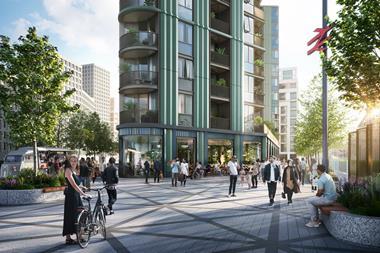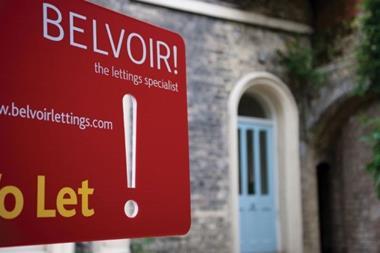With their ability to be swift of foot and innovative in design, to lead the way in sustainable builds and access small, inner-city sites where others fear to tread, what’s not to like about SMEs?

Plenty, it seems, on the part of the English planning system, which is causing delay upon delay for small developments.
Something has to change. Either Westminster doesn’t understand how SMEs operate and how the planning system really works, or it is deliberately ignoring the chaos.
Or perhaps it is all of the above. Thousands of homes are being delayed across England, if not completely shelved, because of the hurdles placed in the way of small businesses looking to do the right thing.
SMEs are up against it. They don’t have volume housebuilders’ buying power, resources or often the political influence. Yet they offer much that should appeal to policymakers and planning officers.
Take low carbon. At Autograph Homes, we go out of our way to incorporate the latest low-carbon thinking into our builds, involving materials and techniques not included in volume housebuilders’ catalogues.
Standard house types bring greater buying power from suppliers – off-site construction being just one example – but sadly ‘doing the right thing’ doesn’t bring you buying power.
Thousands of homes are delayed because of hurdles placed in the way of small businesses
It doesn’t take much more time or effort to deal with a 1,000-unit application of standard house types than a 25-unit application, so it is clear where the focus lies when housing targets are of the essence. Combined with the shortage of experienced local authority staff, the end result is delays for companies that can ill afford the time lag.
Huge financial and physical resources are needed to prepare the many reports the planning regime demands (from pre-apps to reserved matters).
What is unacceptable is when these reports go unread, or wait for someone to get round to reviewing and rubber-stamping them. The impact of these time delays on a small company is detrimental to jobs and cashflow, not to mention bringing forward homes.
Volume housebuilders can park delays on problematic sites and start work in another part of the country; small businesses do not have the luxury of this flexibility.
The government claims SMEs provide depth and variety and are vital to the economy, but the system is stacked against us. The speed (or lack of it) in discharging reserved matters adds to the roadblock. And now we face new scrutiny around phosphate pollution caused by development.
If you lose the SMEs, what are you left with? You lose the vibrancy and independence of a subsector that can deliver 25 affordable houses on an inner-city brownfield site; the innovative conversion of old buildings; and the ability to introduce sustainable measures.
If our politicians understood what was really going on in the housebuilding sector, we wouldn’t be in this impasse.
Urgent action is needed. If not, more families will wait longer for homes, jobs will be lost and businesses will disappear.
Moreover, you can forget hitting the government target of 300,000 homes a year.
Richard Clarke is land and planning manager at Autograph Homes





























![Hilti[82]](https://d2bq2usf2vwncx.cloudfront.net/Pictures/380x253/9/0/6/1884906_hilti82_601642.jpg)
No comments yet